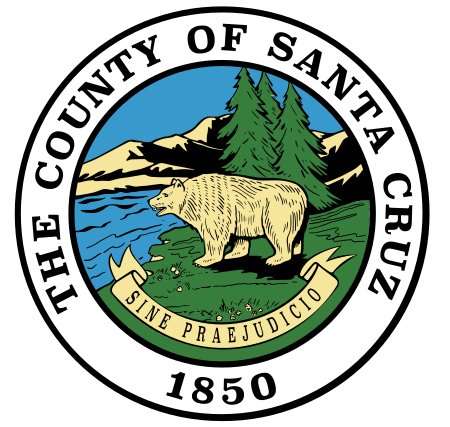EPIDEMIOLOGIST I (#NH2 ) $45.71-$57.80 hourly / $7,923.00-$10,018.00 monthly / $95,076.80-$120,224.00 yearlyEPIDEMIOLOGIST II (#NH1 ) $50.28-$63.59 hourly / $8,715.00-$11,022.00 monthly / $104,582.40-$132,267.20 yearly
Definition
Under general supervision, assists in planning and conducting epidemiological investigations, field studies; and performs related duties as required.
Distinguishing Characteristics
Epidemiologist I is the entry level classification in the Epidemiologist series. Incumbents are responsible for learning and performing a range of routine investigative and analytical epidemiologic activities that include surveillance, data collection, and data analysis for the detection and prevention of diseases and injuries which are limited in scope and may not require a full array and breadth of epidemiological skills and competencies. As the Epidemiologist I gains experience and demonstrates proficiency, incumbents are expected to gradually perform more responsible assignments with increasing independence.
The Epidemiologist II is the journey/lead classification. Incumbents work independently in the design, development, collection, analysis, and dissemination of epidemiologic studies, using the full breadth and range of epidemiological skills and competencies, making recommendations for health improvement, and actively monitoring health trends. The Epidemiologist II may lead epidemiologic investigations and data projects for the prevention and control of specific communicable and chronic diseases, injuries, and other health conditions. May lead or supervise assigned staff.
Typical Tasks
- Initiate and plan epidemiological assignments;
- Perform quality assurance activities including reviewing and validating data for accuracy and performs data cleaning as required;
- Conduct organization and maintenance of internal databases, and the development of surveillance plans;
- Conduct and write literature reviews using academic databases on relevant epidemiological topics and studies within an assigned programmatic area;
- Conduct descriptive analyses in the course of epidemiologic or other investigations using basic epidemiologic, statistical, and data visualization tools, including business analytic tools, mapping tools (GIS) and software, including data science software;
- Assist in preparation of grants and special reports in support of public health content areas such as infectious disease, chronic disease, maternal/child health, social determinants of health, environmental health, etc.;
- Assess and determine program goals and priorities;
- Plans course of study, and implements and evaluates its effectiveness;
- Collects and analyzes data applying advanced biostatistical methodologies to calculate risk of disease and appropriateness of intervention;
- Performs lead role in technical and informational presentations to the professional medical community;
- Assist with development of various health services and programs, and plans, executes and evaluates the work of the facilities, agencies, or community groups with which they work;
- May assist in the planning and development of health programs and policies;
- May conduct programs to train on techniques related to the various phases of community health activities.
Employment Standards
- Working knowledge of medical care terminology and healthcare administration.
- Working knowledge of epidemiological trends and disease patterns, their characteristics, and standards to determine origin, spread and control of hazards to the community.
- Working knowledge of statistical theory and techniques of epidemiological, demographic, biostatistical and community health research.
- Working knowledge of research design methods and techniques.
- Working knowledge of methodologies used to review and evaluate outbreak interventions and public health activities.
- Working knowledge of community resources and medical services available for medical programs.
- Working knowledge of interviewing techniques.
- Working knowledge of social factors influencing the health of communities and methods to promote health equity.
Epidemiologist II:
Thorough knowledge of the above plus:
- Some knowledge of program management, including funding sources, grant proposal writing, program evaluation and fiscal management.
- Some knowledge of the principles of supervision and training.
- Some knowledge of health informatics principles.
- Some knowledge of diversity, equity, and inclusion principles and best practices.
Abilities To:
Epidemiologist I:
- Plan, organize, coordinate and direct a public health program.
- Initiate and design complex interventions to collect field data.
- Apply sophisticated mathematical and biostatistical techniques to analyze data to determine origin, spread and risk of morbidity within populations.
- Write, present and consult with health administrators in the preparation of concise narrative and statistical reports.
- Establish and maintain effective working relationships with private and public agencies in the health care delivery system.
- Apply research methodologies and research findings in the course of disease control or prevention projects.
- Assist in preparing grant applications and contracts.
- Speak effectively before groups.
- Use computer software packages to analyze and present data in diagrammatic formats and support data processing activities.
Epidemiologist II:
All of the above, plus:
- Provide expert consultation on epidemiology, health status measurement/analysis.
- Advocate for measures meant to reduce the level of disease in the community.
- Develop and carry out data quality assurance / control procedures to assure the quality, completeness, and validity of a variety of complex data sources.
- Train, lead and evaluate the work of subordinate staff.
- Prepare and monitor a budget, develop policies and procedures, and evaluate program effectiveness.
- Prepare grant applications and contracts.
Training and Experience
Any combination of training and experience, which would provide the required knowledge and abilities, is qualifying. A typical way to obtain these would be:
Epidemiologist I
Graduation from an accredited School with a Master’s Degree, or higher, in Epidemiology, Public Health, Biostatistics, Data Science, or closely related field;
Epidemiologist II
Graduation from an accredited School with a Master's Degree, or higher, in Epidemiology, Public Health, Biostatistics, Data Science, or closely related field;
AND
Two (2) years of experience in a public health agency with responsibility for communicable disease control efforts comparable to the Epidemiologist I.
SPECIAL REQUIREMENTS
In the event of grant funding, additional specialized requirements may apply. (Note: This may be identified at the time of recruitment)
Miscellaneous
Bargaining Unit: General Rep
EEOC Job Category: 02
Occupational Grouping: 48
Worker's Comp Code: 0290
CLASS: NH2;
CLASS: NH1; REV: 11/1/2023;

